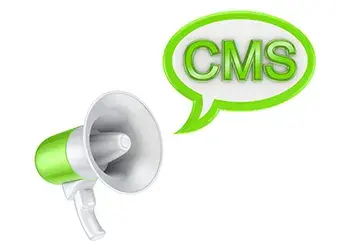Meaningful use means that “providers need to show they are using certified EHR technology in ways that can be measured significantly in quality and in quantity”. EHR/EMR integrated medical billing and coding services allow physicians to focus on patient care and achieve their Meaningful Use goals.
The deadline to register and attest to meeting the meaningful use requirements for 2016 by ended at midnight on Monday, March 13, 2017. CMS had issued a notification reminding eligible professionals, hospitals, and critical access hospitals in the Medicare EHR Incentive Program about the deadline to attest to the 2016 program requirements in order to avoid a 2018 payment adjustment.
Eligible professionals (EPs) that have an attestation status of “Pending eReporting” are required to submit their clinical quality measures (CQMs) using their certified EHR technology through an available mechanism for Physician Quality Reporting System by midnight on March 31, 2017. CMS stated that eligible professionals with “Pending eReporting” status may opt to modify their attestation and enter their CQMs manually and still successfully conform to meaningful use requirements.
Eligible hospitals and critical access hospitals with an attestation status of “Pending eReporting” reporting four CQMs through the QualityNet Secure Portal for the Hospital Inpatient Quality Reporting (IQR) and Medicare EHR Incentive Program had to submit their attestation by March 13 at midnight to meet meaningful use requirements. These hospitals could also opt to modify their attestation and enter 16 CQMs manually to meet meaningful use requirements.
CMS reminded providers submitting their CQMs electronically that they should expect to see “Pending eReporting” until the submission period closes and outcomes are scheduled to be posted. For hospitals, this will take place around late March or early April 2017, and for EPs, around late April or early May 2017. Those with prior eCQM statuses of “Pending eReporting”, will see their status as either “Locked for Payment” or “Expired”.
The meaningful use of EHR technology is aimed at improving the quality, safety, and efficiency of health care, reduce health disparities, engage patients and their families in their health care, and improve population and public health. Eligible professionals and eligible hospitals who adopt, implement, upgrade, and meaningfully use certified EHR technology to positively affect patient care receive financial incentives from the Medicare and Medicaid EHR Incentive Programs.
CMS listed the objectives and measures for EPs, eligible hospitals, and CAHs to successfully demonstrate meaningful use for an EHR reporting period in 2015 through 2017 as follows:
- Protect Patient Health Information
- Clinical Decision Support (CDS)
- Computerized Provider Order Entry (CPOE)
- Electronic Prescribing
- Health Information Exchange
- Patient Specific Education
- Medication Reconciliation
- Patient Electronic Access
- Secure Electronic Messaging (EPs only)
- Public Health Reporting
The EHR Incentive Programs in 2015 through 2017 reflect changes to the objectives and measures of Stages 1 and 2 to align with Stage 3, which focuses on the advanced use of EHRs. The changes also aim to reduce the complexity of the program and work toward a shift to a single set of sustainable objectives and measures in 2018.
Payment penalties had affected 171,000 eligible professionals last year. With their EHR-integrated solutions, medical billing companies play a key role in helping providers to meet Meaningful Use requirements and avoid such penalties. With EHR-integrated medical billing support, demographic and billing data is seamlessly transmitted from the provider’s documentation system to the medical billing company. Their software solutions allow providers to ensure qualitative and quantitative report generation, data aggregation and information sharing within a safe, encrypted environment, all of which are crucial to demonstrate Meaningful Use and avoid payment adjustments.



0 Comments